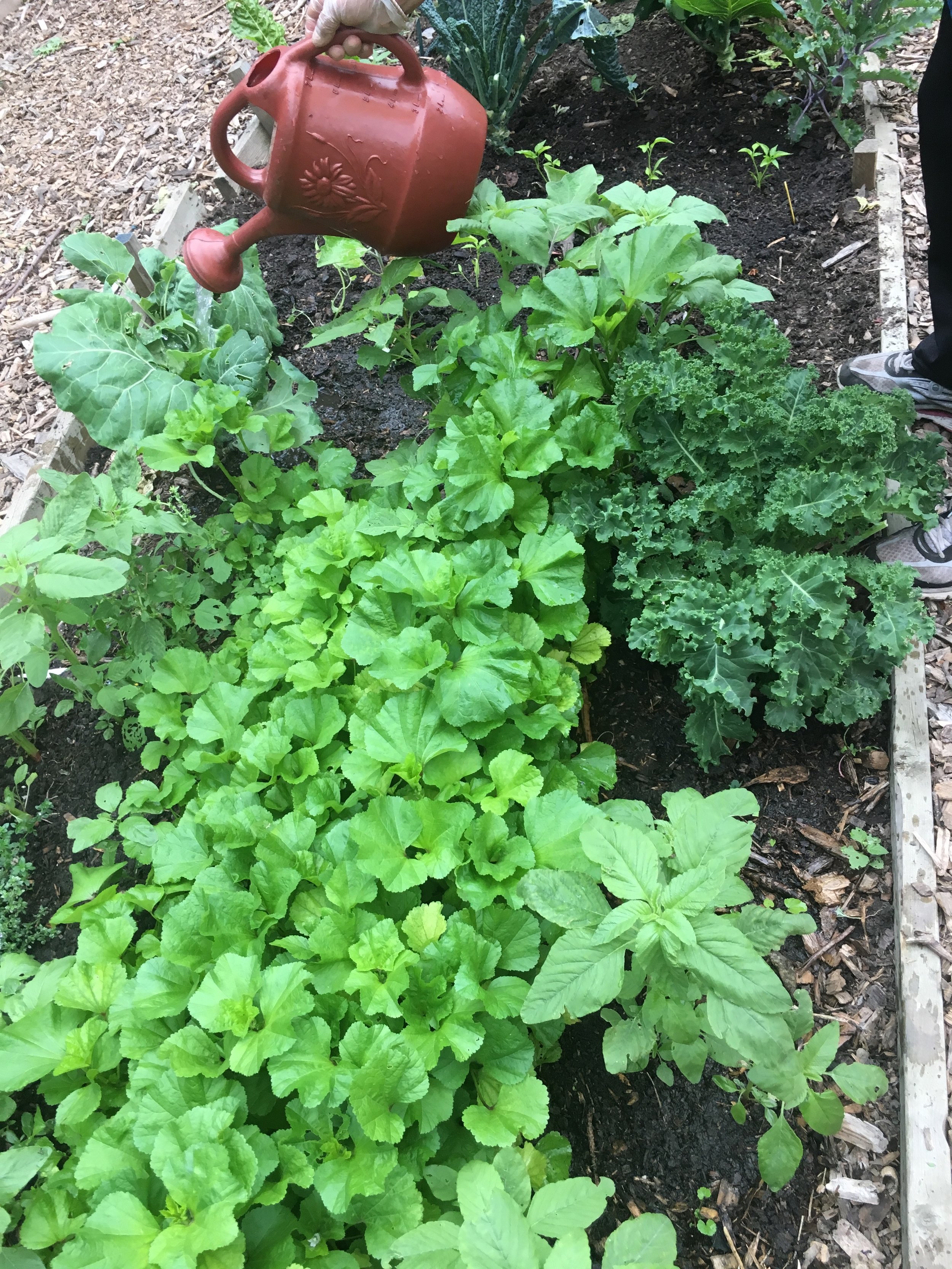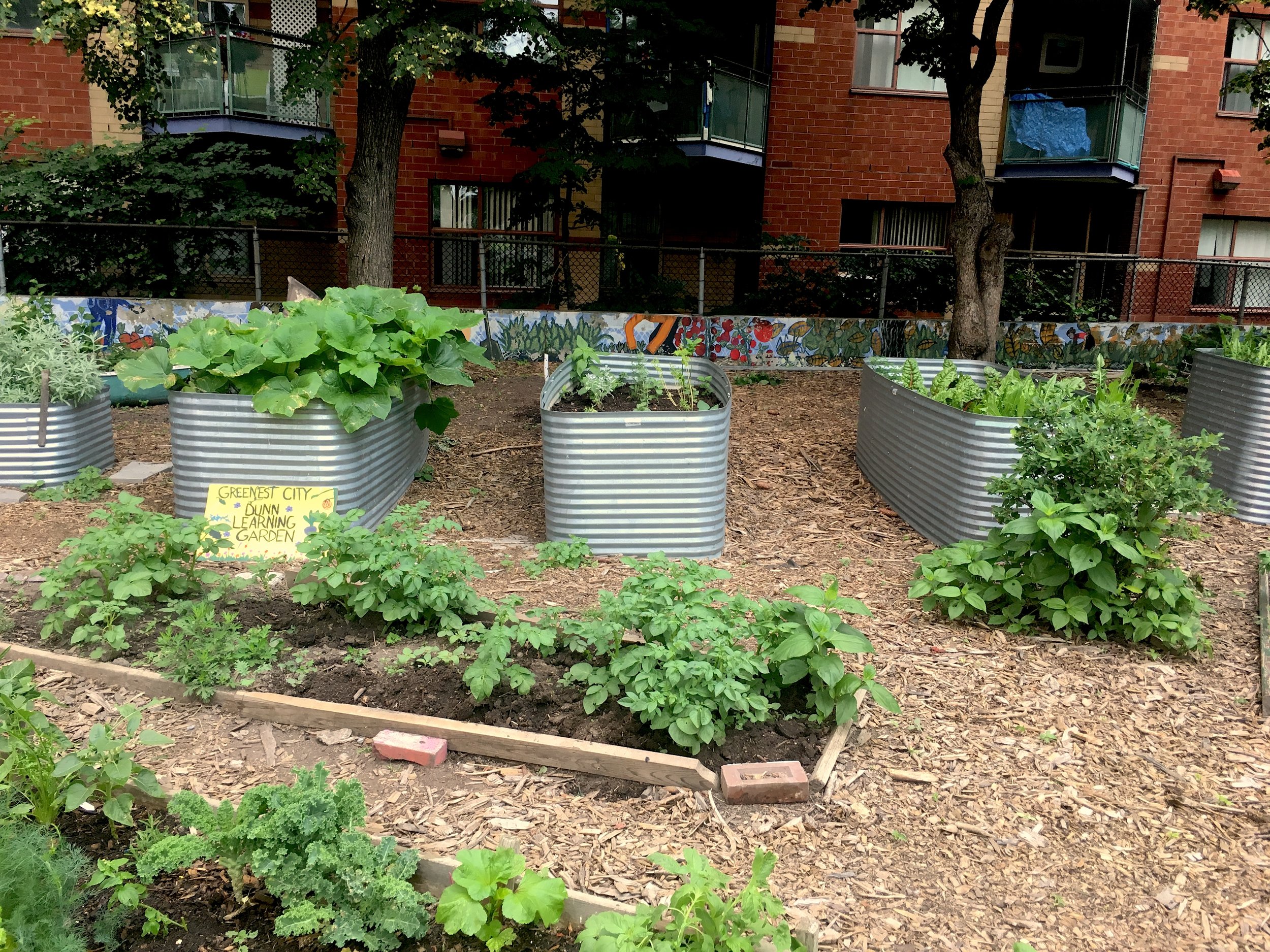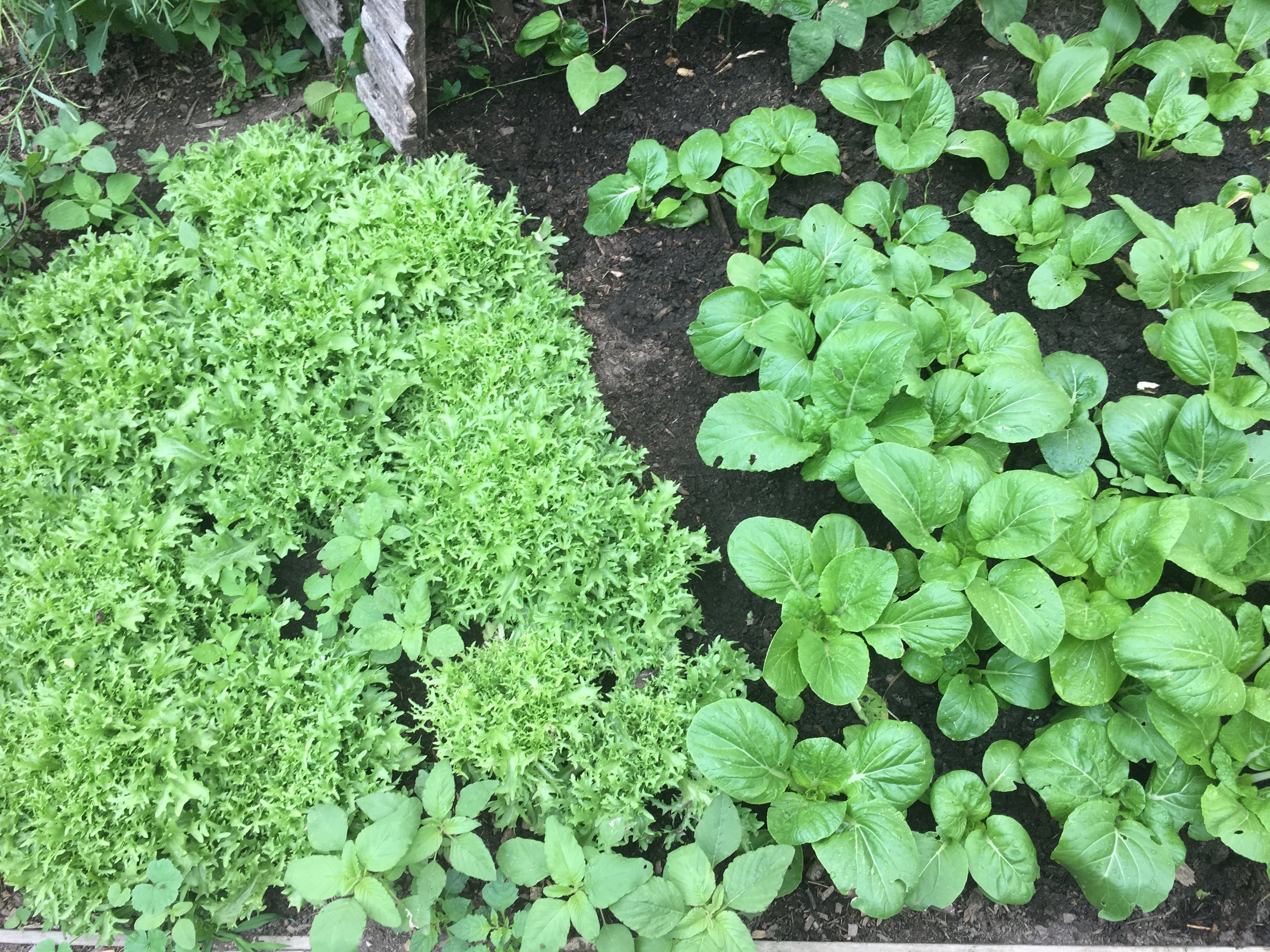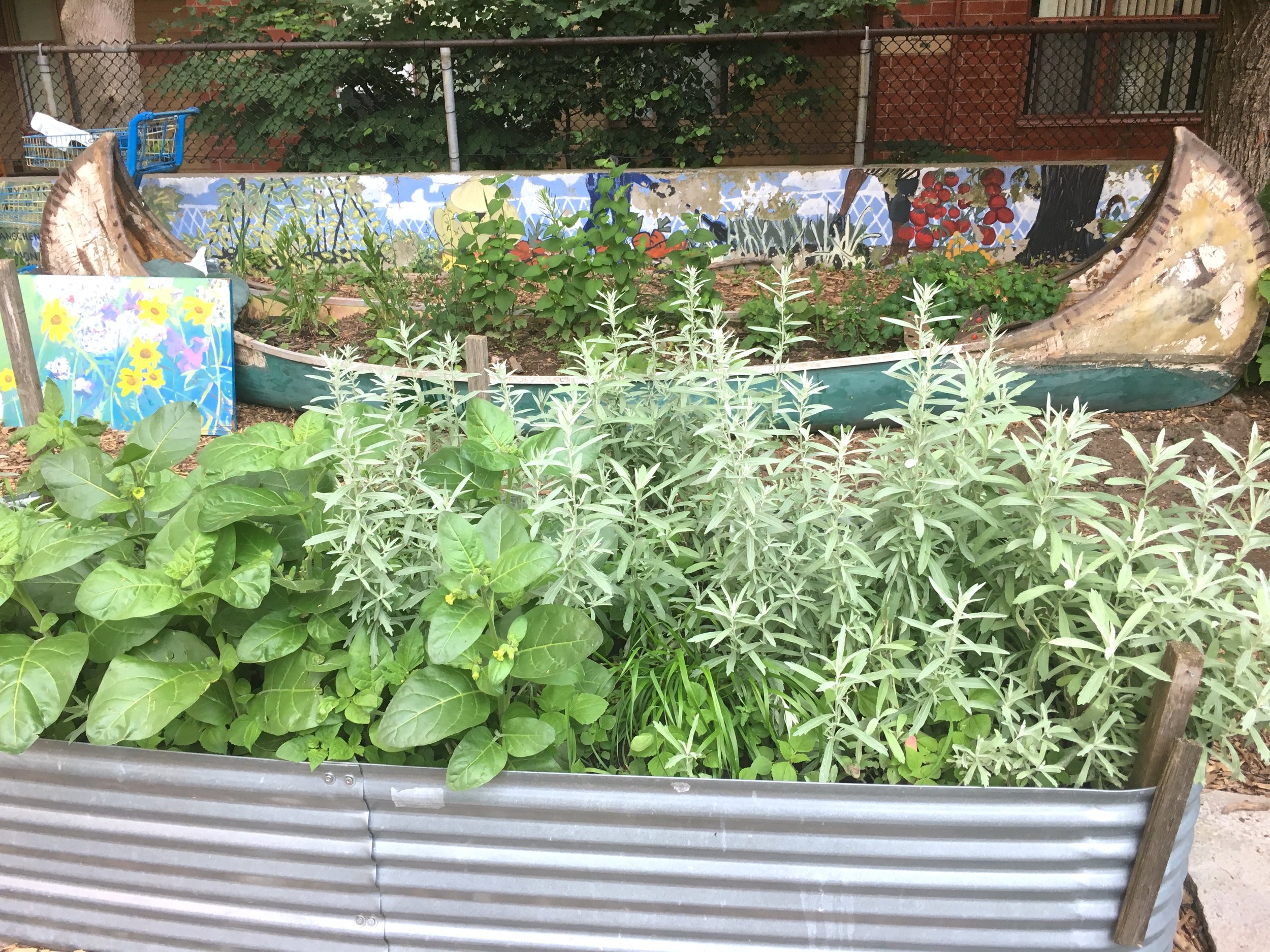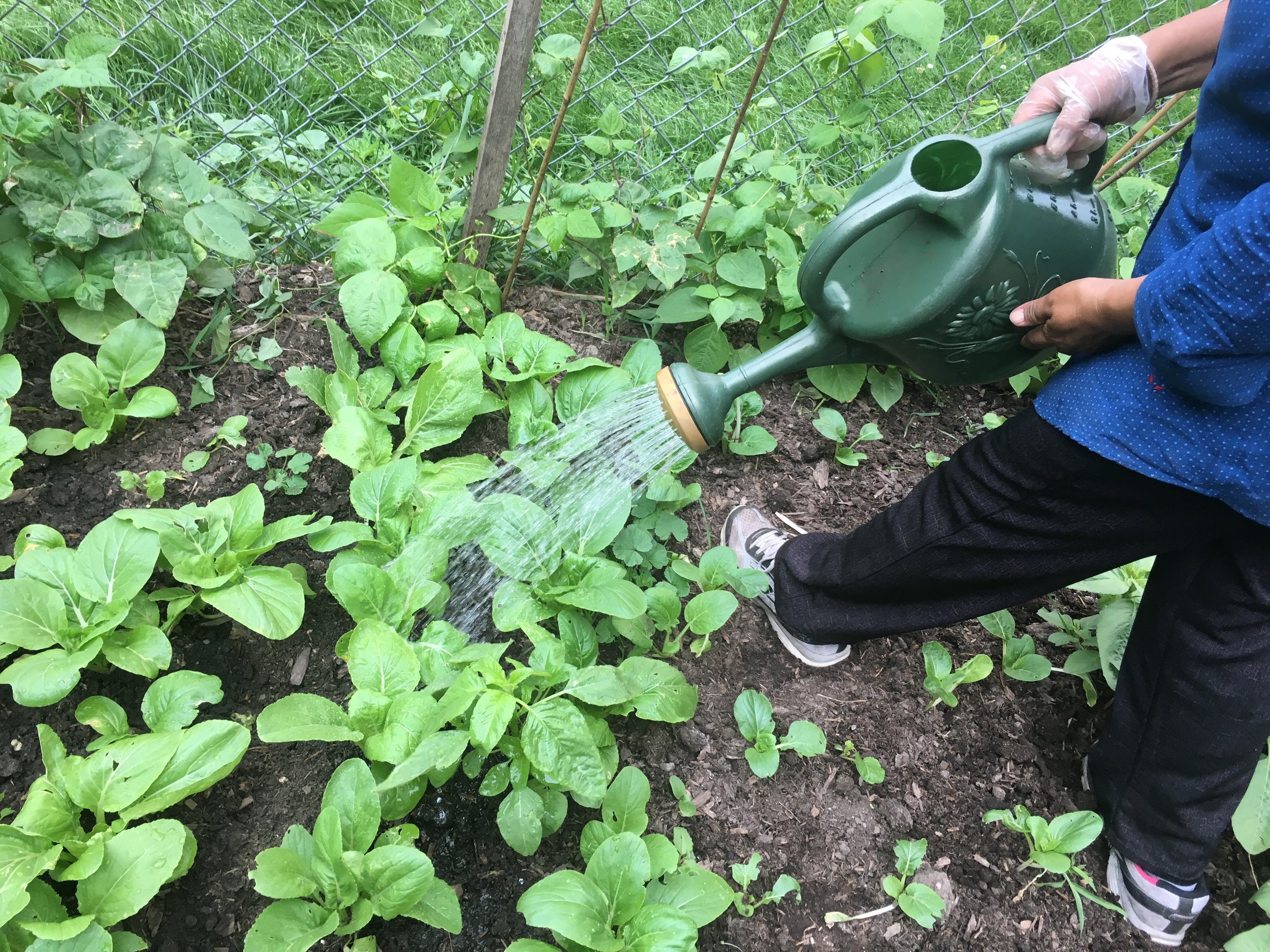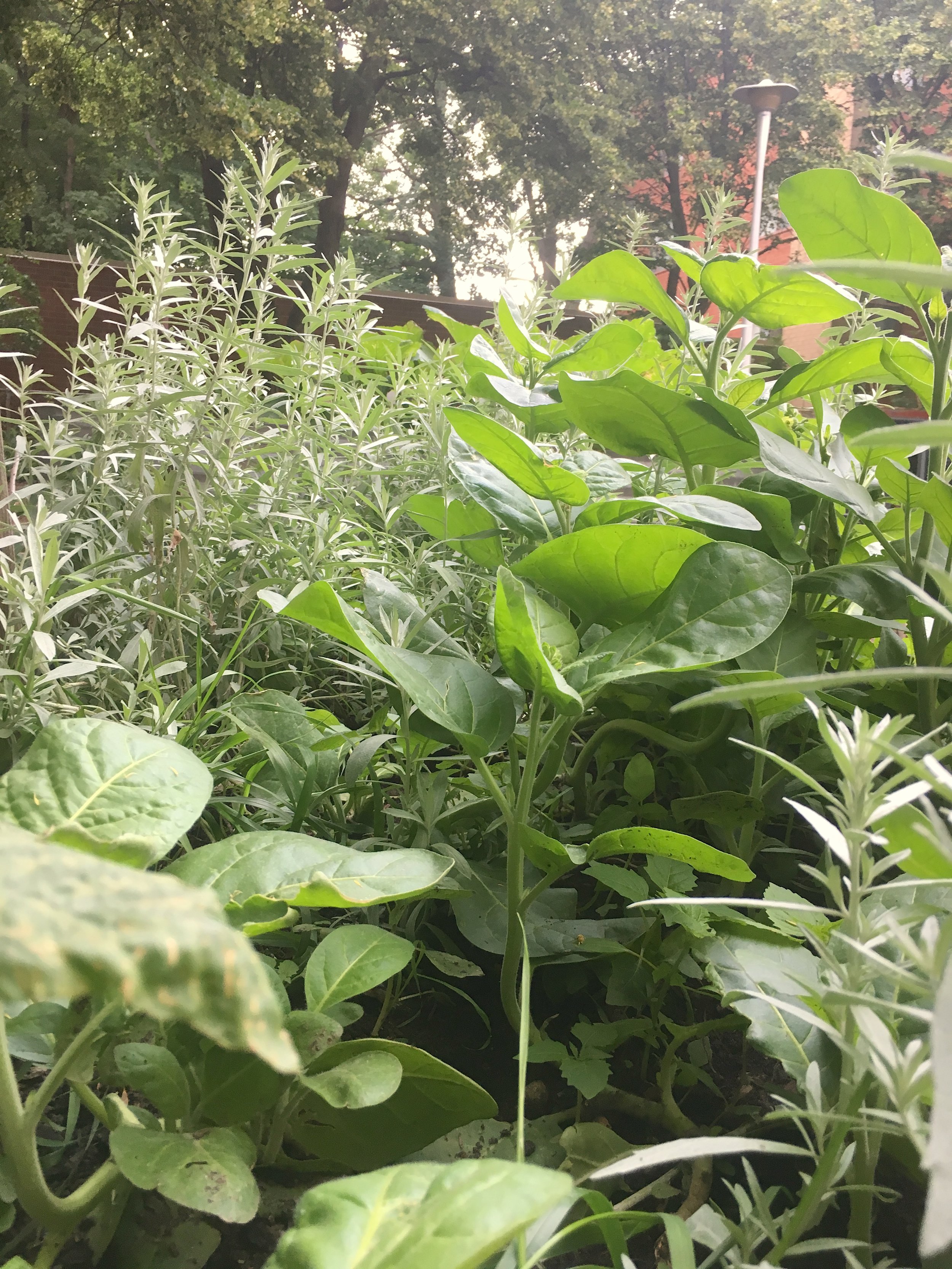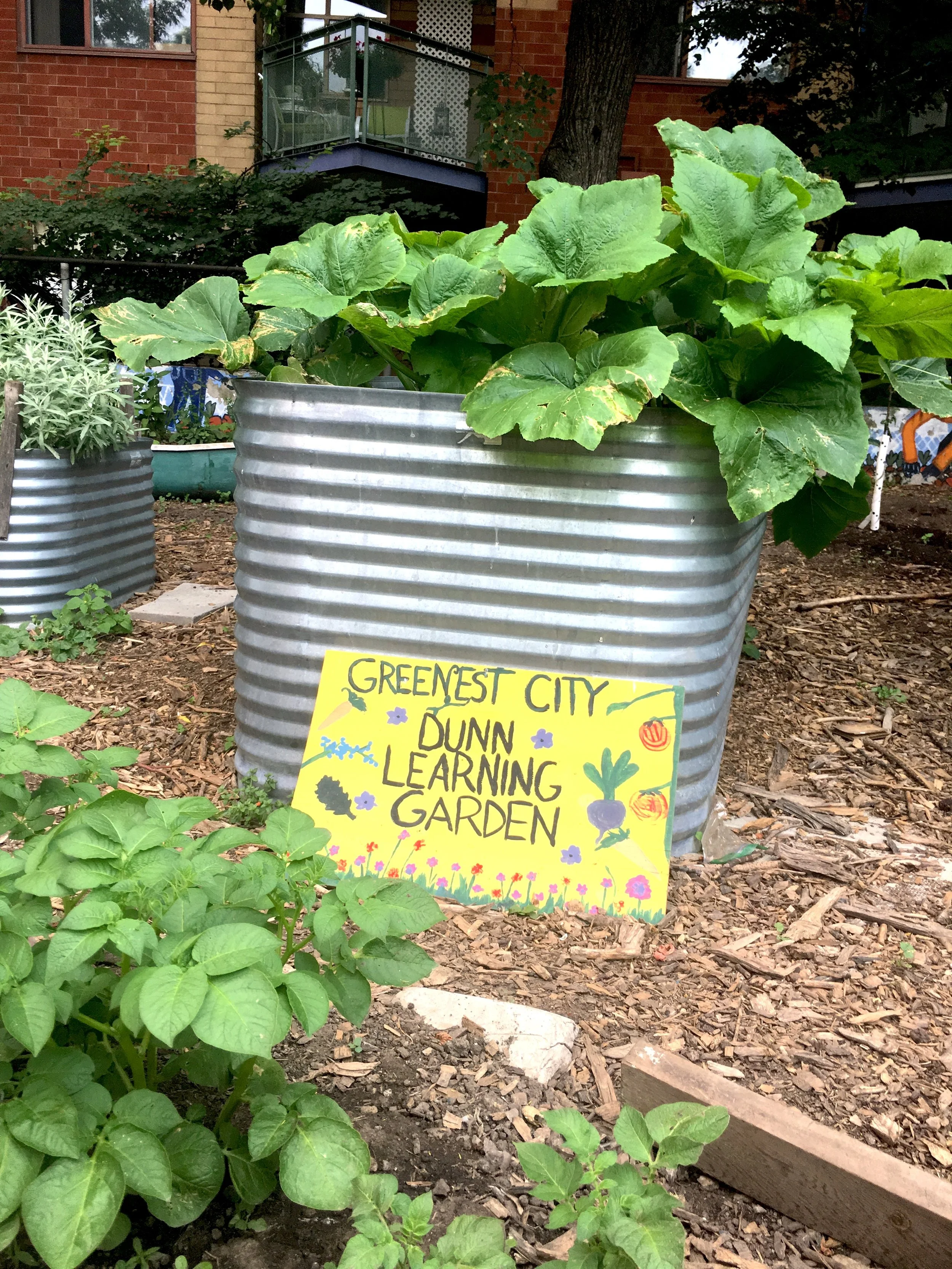It’s a sunny day in Parkdale and the buildings surrounding the Dunn Parkette Learning Garden provide some shade. The garden is run by Greenest City, a key partner in the Co-op Cred Program where they host up to 10 participants in the gardening program. At the the garden 4 co-op cred participants, a placement student and 2 summer students are tending to the garden. Some are harvesting plants while others plant seedlings and perform some garden maintenance. There’s a variety of vegetation planted in plots, raised beds and even growing along the fence.
We meet a friendly woman decked out in a pink floral top and matching visor named Sonam. She’s a seasoned gardener with a wealth of knowledge for anyone willing to learn and today she shared her story with us.
She tells us that her life story is quite long so she gives us the short version. Sonam was born in India’s mountainous north and lived there until she moved south when she got married. It was there that she learned how to farm by tending to corn on her husband’s large farm. She has her fair share of stories from those days and tells us that she used to deal with elephants trampling through her plots!
Sonam first heard about the Co-op Cred Greenest City placement in an ESL class she was attending. At the time, she was working at the West End Food Co-op and Sorauren Market. She saw this garden as an opportunity to volunteer and share her skills, a change from her current work. Her experience farming back home made this placement a perfect fit for her.
While we were there, Sonam educated us about the various plants in the garden she’s tending to and a bit about them. We also learn about the Three Sisters: beans, corn, and squash which are based on an Iroquois legend. The legend states that these three plants are inseparable sisters who only grow together, which serves as the basis for the tradition of planting the three together.
In this placement Sonam enjoys the fact that she can plant produce, teach people how to garden, and share the harvest with her fellow participants. In fact, Michaela, a summer student, highlights that the difference between the Dunn Parkette Learning Garden and other Greenest City programs is that this garden offers participants the opportunity to share and learn together.
By doing so, they can build a sense of community while also connecting with the environment. Since participants range from seasoned gardeners to novices, those who are experienced then have the chance to teach others. The program also provides participants with the opportunity to grow their own food while also learning how to identify plants in the environment.
We also asked Adrian DiLena, a Community Cooking Coordinator at Greenest City, what his favourite part about the program is:
“One thing that I’ve discovered is that once we’ve collectively established a work plan for a session, listed out the tasks that should be worked on for the day - there is a lot of ‘free’ time to converse amongst ourselves while going about the task at hand. This is something I’ve always loved about cooking with people and I think it holds true for gardening as well - its gives people an opportunity to get to know one another; to ask questions; to not be distracted by the regular day to day stresses. In the garden, we might be meticulously weeding a bed of tomato plants, but we also use that time to talk and build relationships.”
About Greenest City - Adrian DiLena
Greenest City began in 1996 as an environmental organization. Over that 20+ year history, the organization has adapted and been informed by the changing nature of environmentalism. Greenest City sees programming that operates at the intersection of food security, social & environmental justice and community capacity building as a way to not only educate and improve people’s relationships with the natural world, but also as a means to improve individual health outcomes and alleviate social isolation.
Co-op Cred is fits into the above framework by giving people in the Parkdale community the ability to take part in the planning, tending, harvesting, eating and overall enjoyment of the garden spaces while offering an opportunity for community members to pursue flexible work arrangement. In turn, those community members can use that credit to obtain affordable food items as well as hopefully support local economies. I think that when people are able to identify as stakeholders in a project or their community, its not long before you can see how their care and personal investment ripples through the broader community and makes positive impact.
If you are interested in volunteering with Greenest City, you can sign up for their newsletter to find out when the next volunteer opportunity is.
